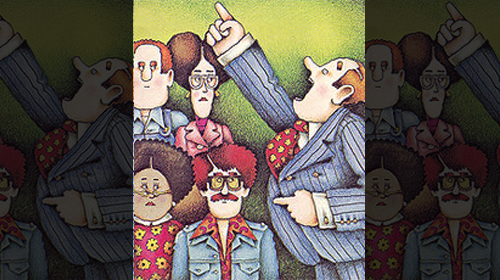
Recent days have seen significant concern about an unassuming bill with an unassuming name: the The bill, H.R. 347, has been variously described as making the First Amendment illegal or criminalizing the Occupy protests.
The truth is more mundane, but the issues raised are still of major significance for the First Amendment.
It's important to note ‚ÄĒ contrary to some reports ‚ÄĒ that H.R. 347 , or directly apply to the Occupy protests. The bill slightly rewrites a short trespass law, originally passed in 1971 and amended a couple of times since, that covers areas subject to heightened Secret Service security measures.
These restricted areas include locations where individuals under Secret Service protection are temporarily located, and certain large special events like a presidential inauguration. They can also include large public events like the Super Bowl and the presidential nominating conventions (troublingly, the Department of Homeland Security has significant discretion in designating what qualifies as one of these special events).
The original statute, unchanged by H.R. 347,made certain conduct with respect to these restricted areas a crime, including simple trespass, actions in or near the restricted area that would "disrupt the orderly conduct of Government," and blocking the entrance or exit to the restricted area.
H.R. 347 did make one noteworthy change, which may make it easier for the Secret Service to overuse or misuse the statute to arrest lawful protesters.
Without getting too much into the weeds, most crimes require the government to prove a certain state of mind. Under the original language of the law, you had to act "willfully and knowingly" when committing the crime. In short, you had to know your conduct was illegal. Under H.R. 347, you will simply need to act "knowingly," which here would mean that you know you're in a restricted area, but not necessarily that you're committing a crime.
Any time the government lowers the intent requirement, it makes it easier for a prosecutor to prove her case, and it gives law enforcement more discretion when enforcing the law. To be sure, this is of concern to the ņŌįń√ŇŅ™ĹĪĹŠĻŻ. We will monitor the implementation of H.R. 347 for any abuse or misuse.
Also, while H.R. 347, on its own, is only of incremental importance, it could be misused as part of a larger move by the Secret Service and others to suppress lawful protest by relegating it to particular locations at a public event. These "free speech zones" are frequently used to target certain viewpoints or to keep protesters away from the cameras. Although H.R. 347 doesn't directly address free speech zones, it is part of the set of laws that make this conduct possible, and should be seen in this context.
Rest assured we'll be keeping an eye on how this law will be interpreted and used by law enforcement ‚ÄĒ especially in light of the coming elections.
UPDATE: The headline has been changed to provide some description of the bill.
Learn more about free speech: Sign up for breaking news alerts, , and .

